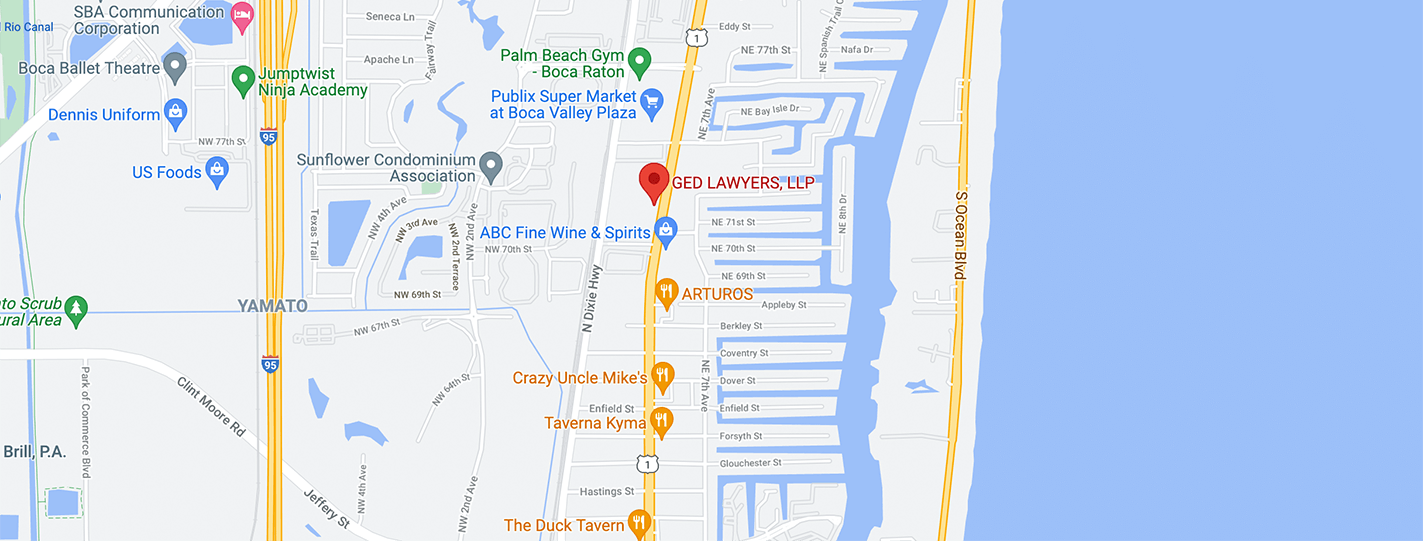
Who pays for a rental car after an accident depends on factors such as who caused the crash and what type of insurance coverage is available. Understanding your rights and options could help you avoid paying out of pocket for an expense that insurance should cover.
If you have significant injuries and other damages or are struggling to get your rental car covered, you might want to speak with a Boca Raton car accident lawyer near you.
Will My No-Fault Insurance Cover the Cost of a Rental Car?
Several states, including Florida, have no-fault auto insurance laws, meaning drivers must turn to their insurance coverage to pay for expenses and losses after a crash, regardless of fault. However, these laws primarily focus on medical care costs and lost income, not vehicle damage repair and rental cars.
Rental car coverage and property damage repair costs are still fault-based claims in these states. Under Florida Statutes § 324.022, all drivers must have property damage liability coverage that typically pays for rental reimbursement or rental car coverage for victims of an accident they caused.
we are here for our clients and their legal needs, with proficiency in a broad range of fields. GET A FREE CONSULTATION
Who Pays the Rental Car Costs When You Are the Victim of a Crash?
Typically, if another driver causes an accident, their property damage liability insurance should cover the cost of your rental car. This policy covers the repair or replacement of the other person’s car, as well as related expenses, including rental car costs while your vehicle is in the shop.
However, getting the at-fault driver’s insurance company to pay quickly is not always easy. The adjuster will likely want to investigate what happened and be sure their policyholder was the at-fault party. This query may take time you don’t have if you need your vehicle to get to work or doctor’s appointments. Your options may include paying the rental costs upfront or seeking reimbursement through your insurer later.
Who Pays for a Rental Car if I Caused an Accident?
If you cause a crash, the other party’s insurance carrier will not cover the cost of your rental car. You will need to pay with your money or tap into your insurance policy. If you have collision insurance or another policy that reimburses you for rental car coverage, this policy will cover the cost of your rental up to a daily limit.
If you do not have one of these optional coverages, you will likely be responsible for paying for the rental car yourself.
with compassionate advice and professional assistance. CALL US TODAY
What Happens if the Other Driver’s Insurance Company Will Not Accept Fault?
If the other driver’s insurance company hasn’t completed its investigation or disputes that their policyholder caused the crash, it could delay rental car coverage until the dispute is resolved. However, you still need a vehicle. Your options when this situation occurs include:
- Use your rental reimbursement coverage, if available
- Pay out of pocket and keep receipts to request reimbursement later
- Negotiate a better rate with the rental company
It is critical to know that if the insurer totals your vehicle, your rental reimbursement will typically end within a few days after you receive your total loss settlement. You’ll have limited time to figure out what to do next— immediately buying a new car or paying for your rental out of pocket until you find the right vehicle.
We look forward to hearing from you and helping you with your legal needs. CALL FOR A FREE EVALUATION
What Do I Need to Know About Renting a Car After a Collision?
The insurance company will likely only cover the cost of renting a vehicle comparable to the one that suffered damage. Thus, you can rent a small sedan, SUV, or luxury car if that is what you already drive, but you would cover the difference if you decided to upgrade your rental.
There are other factors to consider when you need to rent a car after a collision. You will want to review your insurance policy to ensure you understand:
- The daily limits paid for the vehicle
- Any maximum rental periods
- Whether taxes and fees are included
Suppose you exceed the coverage in any of these categories. In that case, you will pay out of pocket for the difference—even if you opt for a less expensive vehicle for a longer period but still exceed the policy’s maximum rental period.
How Can I Pay for a Rental Car if the At-Fault Driver Is Uninsured?
If the at-fault driver has no insurance, things get more complicated. Your collision coverage and rental reimbursement insurance would generally come first if you purchased that option. If not, you may need to pay for the rental out of pocket.
Uninsured/underinsured motorist insurance typically does not provide coverage for rental cars.
If you pay for the rental car yourself, it may be possible to sue the at-fault driver to recover the money you lost. You should discuss your options with a personal injury lawyer, especially if you also sustained severe injuries.
When Can I Sue an At-Fault Driver for the Damages Incurred?
Insurance companies may delay or deny claims, even when they clearly include rental reimbursement. Often, these cases also involve a wide range of other expenses and losses. Are you struggling to get your damages covered after a crash? If so, you should speak to a car accident lawyer as soon as possible.
An attorney can step in, deal with the insurance companies, and pursue the compensation you deserve. Under Florida Statutes § 95.11, they may only have up to two years to sue an at-fault motorist, so it pays to act quickly.
Talk to an Attorney About Your Car Accident Today
At GED Lawyers, our case results demonstrate that we’ve recovered over $100 million since opening our firm in 1995. We are here to help you get the money you need to cover your rental car costs after an accident, as well as other expenses. Contact us today to schedule a complimentary consultation with our team.
